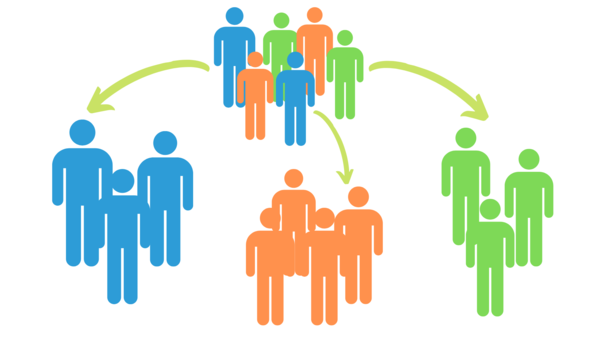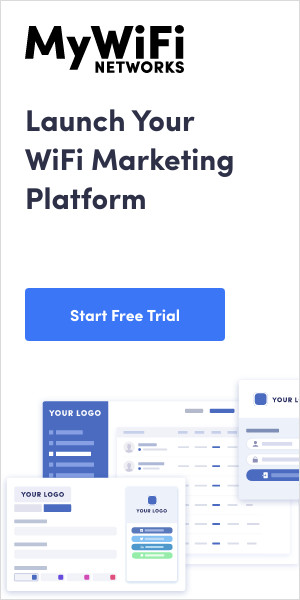No approach to digital marketing can compare to WiFi marketing in providing an all-inclusive, top-down picture of customers of a local business. The data collection and insight into customer behavior at the core of this groundbreaking practice are powerful tools in every conceivable form of customer outreach.
In this article, we’ll delve into the fact that WiFi marketing offers a wide-ranging view of your client’s customer base that’s capable of revealing insights about:
- all customers,
- specific segments,
- individual customers.
Some interesting WiFi analytics make it all happen, as we’ll discuss along the way.
An Adaptive Approach to Leveraging WiFi Marketing Intel
Campaign goals dictate campaign audiences—the right target group for some marketing initiatives may be all your client’s customers, for others, it could be a small group or even individuals.
In this section, we’ll look at three ways that you can use WiFi marketing intel to help your clients and run more effective campaigns.
A Macro View of Customers: Your Source for Actionable Customer Insights
WiFi analytics can provide a generalized understanding of your client’s entire customer base. That knowledge can help you do two things:
- Drive operational improvements—An overview of customer behavior allows business owners to optimize daily staffing and stocking, adjust business hours in response to presence analytics data, and make changes to product or service offerings.
- Discover marketing opportunities—Knowing things like the average age of customers, where most of them live, and the gender distribution of the customer base can help marketers define a customer profile. That’s a crucial step in improving engagement with the whole group and in understanding important customer segments.
Let’s look at an example. A marketing agency that works with a restaurateur could make use of a simple metric like Popular Visit Times. Taking two data points, Peak Time 1 and Peak Time 2, the agency could see opportunities for operational and marketing improvements like these:
- Operations
- Peak Time 1 is when the restaurant should staff-up to better serve the rush of customers.
- Peak Time 1 requires extra supplies on hand to meet the spike in demand.
- Marketing
- Extend the duration of Peak Time 1 by offering a discount that’s only available for a couple of hours around that customer rush.
- Peak Time 2, no matter how small the second spike in daily traffic, should be a prime factor when creating a campaign to increase business. A time-sensitive offer could create a major boost during the restaurant’s second-busiest time of day.
Many WiFi analytics metrics help reveal a macro view of customer behavior; once marketers have the whole picture, they can make better decisions about what to offer, when to offer it, and how to grow their client’s customer base.

A Precision Tool for Defining Segments of Your Customer Base
Using WiFi analytics allows you to segment your client’s audience, which means you can reward the most active segment, encourage more business from dormant segments, and spark interest in hard-to-attract groups.
Digital marketing agencies are commonly called upon to execute campaigns that require audience segmentation, and for every way you must sort the customer base, there’s a piece of WiFi analytics data that can help.
Imagine you’re creating a campaign for a gym owner who wants to re-engage formerly active patrons. With the right message, you can motivate gym customers to come back, but you have to know who to send the message to. By working from a simple metric, Last Visit Date, you can create an email campaign that’s designed to bring long-absent customers back.
To foster loyalty among your client’s most active customers, identify those people based on WiFi analytics metrics like Monthly Frequency, Average Dwell Time, or whatever metric makes sense for the customer base you’re targeting.
Any segment you need to reach out to can be defined based on WiFi data. You may have a campaign that’s targeted exclusively at new customers, females, customers over 21, long-time customers…it doesn’t matter, WiFi analytics has you covered.

Marketing to the Individual: The Ultimate in Personalized Outreach
When a user logs on to a guest WiFi network, you’ll get their contact information and an opportunity to collect profile data, like the customer’s first and last name, gender, and date of birth. That’s critical customer data for optimizing loyalty campaigns.
WiFi data provides detailed information about individual customers, which enables highly personalized marketing outreach.
Part of this approach simply involves using people’s first names in messages and sending them a coupon on their birthday. However, creative marketers always find new ways that WiFi-collected customer data can help them refine how they engage customers.
For example, when linked with a client’s CRM platform, analysis of customer data can include a detailed view of each customer’s responsiveness to previous campaigns. Your targeted campaign messages can highlight positive prior interactions to remind a visitor why they love your client’s establishment.
Template-based email or social media messages that pull in details about the recipient’s past purchases can make it easy to create messages that feel like personalized marketing outreach even when they were generated automatically.
WiFi Marketing: A High Precision Approach
WiFi marketing allows you to take a well-informed shotgun approach to customer outreach or engage customers with surgical precision.
We hope you enjoyed this brief discussion about how flexible and universally applicable WiFi marketing is. The data used in WiFi marketing can drive campaigns that have a broad target audience as well as campaigns aimed at segments of the customer base and individual customers.


